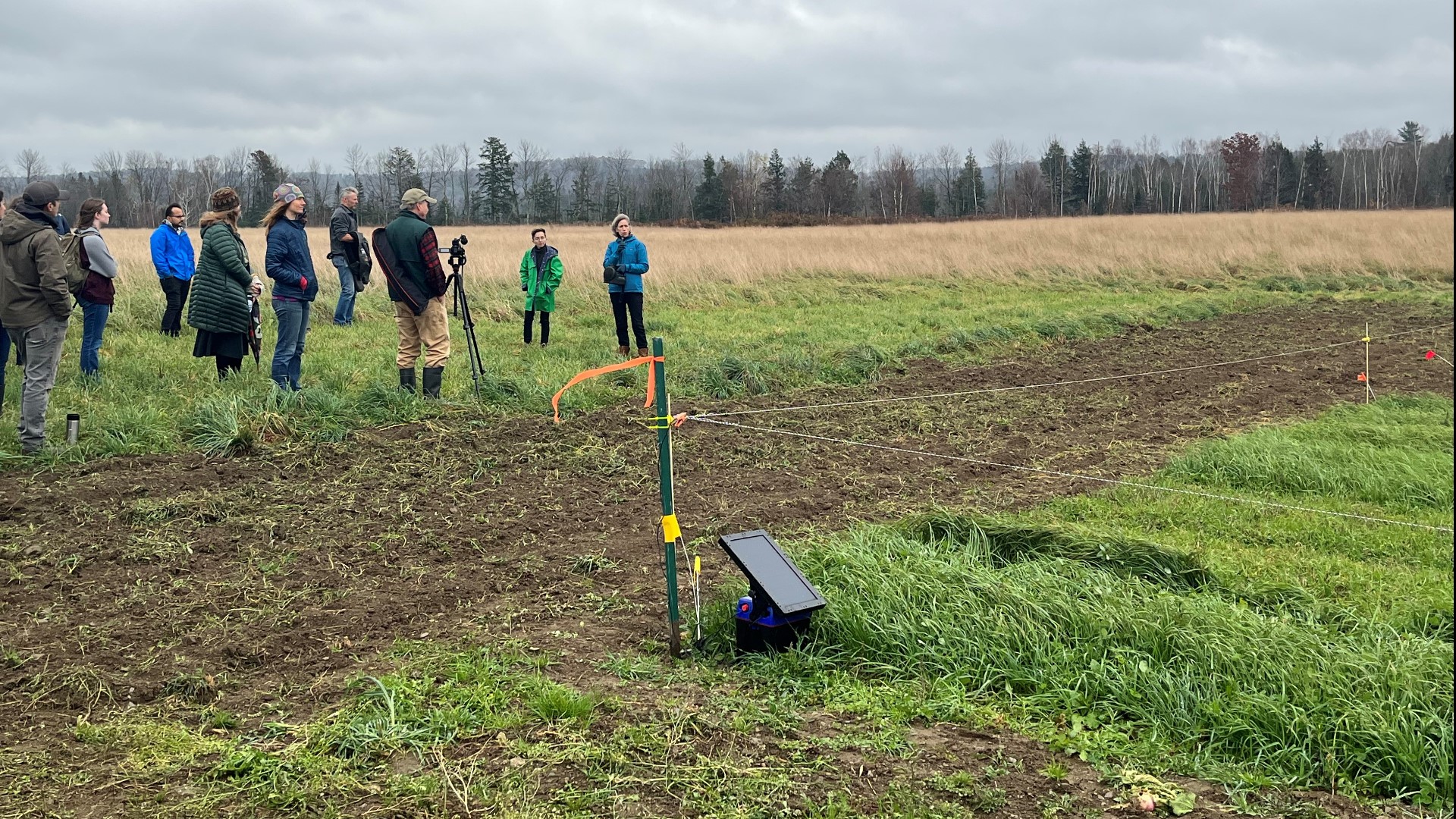WATERVILLE, Maine — Scientists, farmers impacted by PFAS chemicals, educators, and nonprofit groups gathered Tuesday in Waterville to find new ways to farm in the aftermath of forever chemicals.
The meeting at Colby College is a follow-up to a National Symposium held last month at Michigan State University. Farmers impacted by PFAS contamination, scientists, nonprofits, and educators from New England and Michigan are discussing discoveries containing and cleaning up toxic chemicals.
More than 60 Maine farms have been identified as having unsafe levels of PFAS chemicals in their soil and water. The source of the contamination was municipal sludge, which had been spread on farms as fertilizer for decades.
Maine farmers are hopeful ongoing research will help them pivot to new crops and salvage their livelihoods.
Sue Hunter can't even begin to describe the nightmare of discovering her soil, crops, and water on her former dairy farm was tainted by forever chemicals.
"I couldn't grow anything on the land," she said. "I went a whole year without any income from this land,"
The source of the contamination from PFAS chemicals was municipal sludge shipped to the 150-acre farm, a practice state regulators deemed safe and legal.
Sue grew plants, including hemp, in raised beds in this greenhouse. Not willing to give up on her family's land, Sue partnered with University of Maine scientists who have turned sections of her tainted farm into a research project.
People attending a PFAS and Agriculture Maine Regional Meeting Tuesday toured Sue's fields, where UMaine scientists and graduate students are growing different varieties of forage crops.
They will be tested to see which grasses take the most chemicals out of the soil. But experts say finding real solutions will take a long time.
"Even if we could reduce by half with these management practices, it won't be enough for some farms," Ellen Mallory, a professor of sustainable agriculture at UMaine, said.
Maine Farmland Trust is one of the sponsors of the event. Ellen Griswold, the nonprofit's vice president and deputy director, said the goal is to create a network to resolve the ongoing crisis.
"We need to accelerate this research, and the best way to do that is to make sure we communicate beyond state lines," Griswold said.
Sue, meanwhile, is hopeful she can one day pivot to a new crop like grain, where PFAS is taken up in the leaves and stalk and not lose her family's legacy to PFAS contamination.

